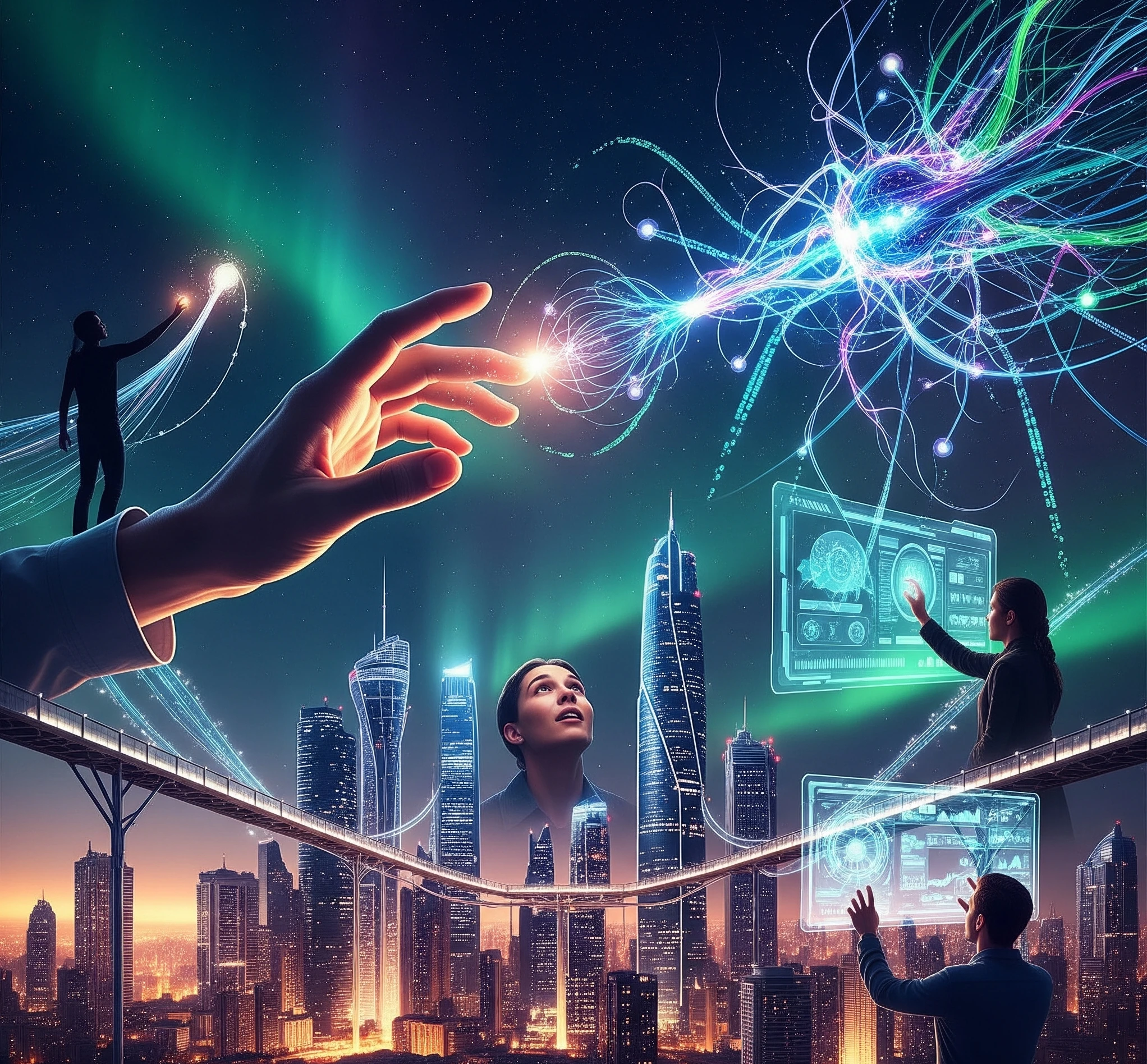The rapid advancement of Artificial Intelligence (AI) is transforming industries and automating tasks at an unprecedented pace. While AI offers incredible potential for efficiency and innovation, it also raises questions about the future of work and the skills that will remain valuable in the years to come. While technical skills will always be important, a new emphasis is emerging: the enduring power of uniquely human soft skills.
In a world increasingly powered by algorithms and automation, it’s our ability to connect, empathise, create, and think critically that will truly set us apart and future-proof our careers. AI can process data and execute tasks, but it lacks the fundamental human qualities that drive collaboration, innovation, and genuine understanding.
Here are some crucial soft skills that AI, in its current and foreseeable forms, simply cannot replicate and that will be essential for career success in the age of intelligent machines:
1. Creativity and Innovation:
AI can generate outputs based on existing data, but true creativity – the ability to imagine novel solutions, think outside the box, and develop original ideas – remains a uniquely human domain. As routine tasks become automated, the demand for individuals who can bring fresh perspectives and innovative approaches will only increase. Cultivating your creative thinking and problem-solving skills will be invaluable.
2. Emotional Intelligence (EQ):
Understanding and managing your own emotions, as well as recognising and influencing the emotions of others, is a cornerstone of effective human interaction. Empathy, compassion, self-awareness, and social skills are crucial for building strong relationships, leading teams, and navigating complex social dynamics in the workplace. AI, despite advancements in natural language processing, cannot truly feel or understand the nuances of human emotion.
3. Critical Thinking and Complex Problem-Solving:
While AI can analyse data and identify patterns, the ability to critically evaluate information, make nuanced judgments, and solve complex, unstructured problems requires human reasoning, intuition, and ethical considerations. This involves questioning assumptions, considering different perspectives, and adapting strategies in response to unforeseen circumstances – skills that go beyond algorithmic capabilities.
4. Communication and Interpersonal Skills:
Effective communication, both verbal and non-verbal, is fundamental for collaboration, building trust, and conveying complex ideas. This includes active listening, clear articulation, persuasive storytelling, and the ability to adapt your communication style to different audiences. AI can generate text and speech, but it lacks the genuine connection and understanding that underpin truly effective human communication.
5. Collaboration and Teamwork:
Working effectively in teams, navigating diverse personalities, resolving conflicts, and fostering a shared sense of purpose are essential skills for most professional environments. AI can assist with project management and coordination, but it cannot replicate the human dynamics, empathy, and shared understanding that drive successful teamwork.
6. Adaptability and Resilience:
The pace of change in the modern world demands individuals who are adaptable, resilient, and able to learn and grow in the face of uncertainty. This includes embracing new technologies, adjusting to evolving roles and responsibilities, and bouncing back from setbacks. While AI can be updated and retrained, it lacks the inherent adaptability and emotional resilience of human beings.
Investing in Your Human Skills:
To future-proof your career in the age of AI, focus on developing and honing these uniquely human soft skills:
- Seek opportunities for creative problem-solving and innovation.
- Practice empathy and active listening in your interactions.
- Develop your critical thinking and analytical abilities.
- Enhance your communication skills through practice and feedback.
- Actively participate in team projects and cultivate your collaborative abilities.
- Embrace change and develop your resilience in the face of challenges.
- Continuously learn and seek out new perspectives.
By investing in these core human capabilities, you can position yourself for long-term success in a world where technology and human ingenuity work hand in hand. The future of work will not be about humans competing with AI, but rather about leveraging our unique human skills to complement and guide these powerful technologies.
